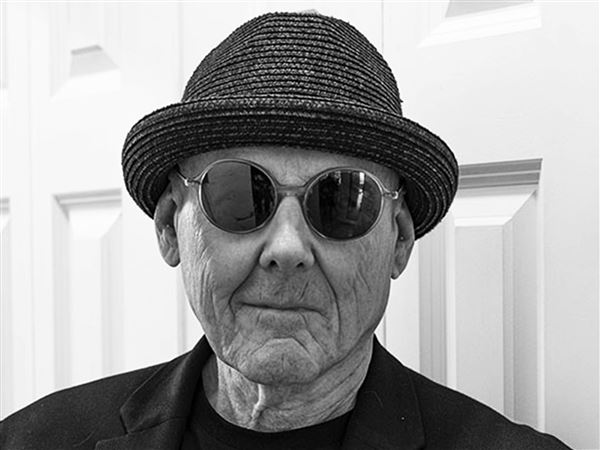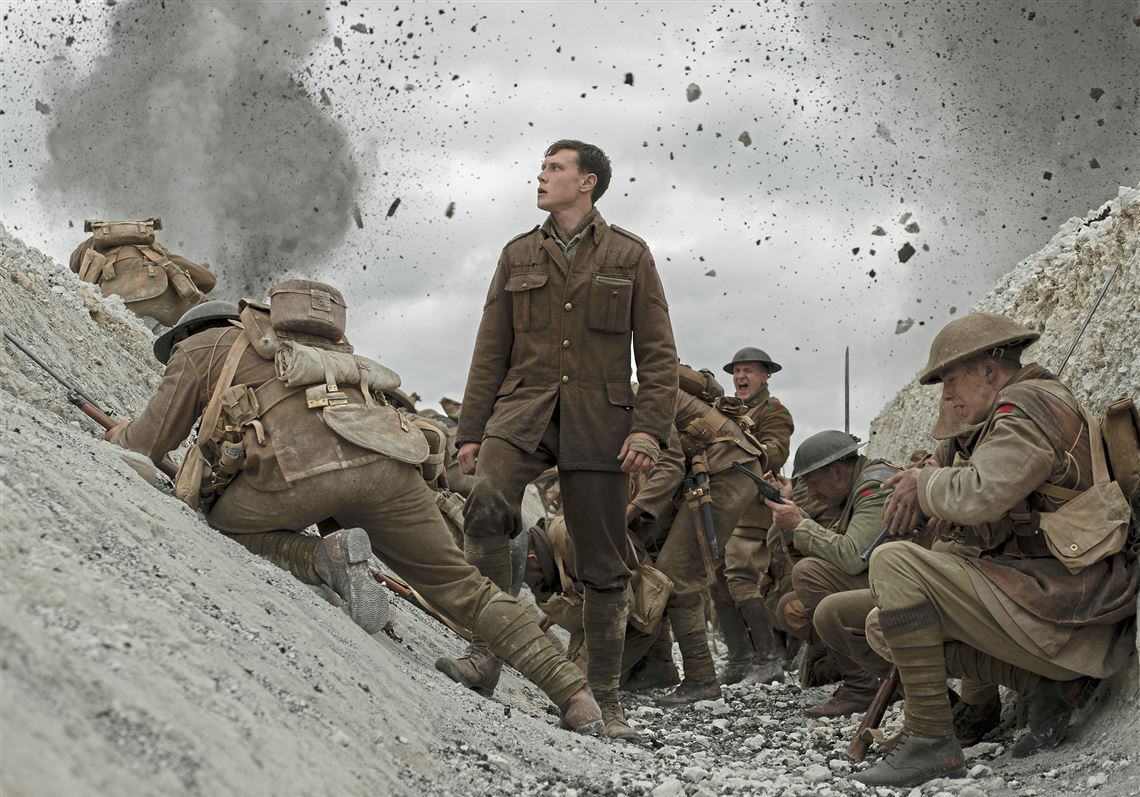All is not quiet on the Western Front in April 1917. Although raging since 1914 and with still a year to go, World War I is far from winding down.
“It’ll be over in a few weeks or months!” thousands of young men had told each other at first, clamoring to enlist and snatch their bit of glory before it was too late and they missed out.
- Starring: Dean-Charles Chapman, George MacKay, Daniel Mays
- Rating: R for violence, disturbing images and language
But that was three years ago. The cocky talk is long gone, along with 2 million lives. Idealistic enthusiasm has devolved from euphoria to grim duty to deep disillusion — except in the case of summoned Lance Cpl. Blake, newly arrived on the front.
At the outset of director Sam Mendes’ brutally compelling “1917,” fresh-faced Cpl. Blake (Dean-Charles Chapman) and fellow Cpl. Schofield (George MacKay) are summoned for a near-impossible mission in northern France, with all communication lines cut: to hand-deliver a message, deep behind enemy lines, to stop 1,600 of their own men from walking into a deadly German trap the next morning. One of those 1,600 is Blake’s brother.
“If you fail,” says Gen. Erinmore (Colin Firth) by way of motivation, “it will be a massacre.”
Blake is fraternally hyper-motivated. Battle-scarred Schofield, less so. Behind their backs, other weary officers indicate it’s hopeless. But the two young corporals take off at top speed.
The most stunning sequence in “1917” is their first long trek down and through the nightmarish labyrinth of trenches, introducing us gradually in a long tracking shot to the god-awful place these men (and the film) inhabit, periodically panning the living-dead faces as they get closer to the perilous no man’s land they must cross.
The farther they go, the more horrific: dead horses all about, soldiers’ corpses still stuck on barbed wire, slogging through the bodies and rats in the deepening, increasingly gruesome mud around the Somme, where more than a million men died just a few weeks earlier.
“Was it like this before Ypres, in the summer?” Blake asks, stunned.
“I don’t remember,” replies Schofield — who traded his combat valor medal for a bottle of wine.
Snipers and booby traps. Quiet farmhouse and noisy plane crash, fighting to the death in the wreckage — friend or foe in the ruins? Hardly time to find out. Gotta keep moving in a race against the clock.
“1917’s” story was inspired by Mendes’ grandfather’s WWI experiences, tales oft-told to Sam as a lad. He and cinematographer Roger Deakins take — and doggedly adhere to — a linear approach (akin to that of Hitchcock’s “Rope” or the great “Russian Ark”) in which the entire film is shot and edited to simulate one consecutive take in real time. The fluid camera, in its frantic pace, can’t rest or linger or leave its protagonists for long.
Mendes’ reputation rests securely on his best picture and director Oscars for “American Beauty” (1999), as well as the Iraqi war pic “Jarhead” (2005) and “The Road to Perdition” (2002). His “1917” — recent winner of the Golden Globes best motion picture, drama award — is much elevated by its visual and aural elements, most notably the superb production design, sound mixing/editing and Thomas Newman’s tense score, enhancing the key moments.
Chapman and MacKay are terrifically moving in their two damnably difficult, different roles, garnished by Firth and Benedict Cumberbatch to spruce up the marquees and posters.
“1917” is technically wondrous, although at times the tech stuff weighs down (and literally obscures) the human characters’ emotional trajectory. Would it have been too much to ask for a map or two to locate us geographically? Evidently, yes. Mendes eschews all such “regular” devices to clarify confusion re: distance and proximity, even in an astounding waterfall/rapids scene with its logjam of bodies to be negotiated. He does so in favor of time-space compressions and surreal lighting by fire, deliberately subbing day for night (and vice versa) in the battle choreography of the infernos.
Will the corporals’ mission be accomplished? If so, by whom?
We come full circle to Erich Maria Remarque’s great novel (and Lew Ayers’ great performance in its film version): All seems quiet on the Western Front — and we never hear a word or care about the eastern one — until someone reaches out of the trench for a butterfly.
Who will survive this hell, and who won’t? Would the former wish he were in the latter’s place?
Post-Gazette film critic emeritus Barry Paris: parispg48@aol.com.
First Published: January 10, 2020, 5:31 p.m.
















